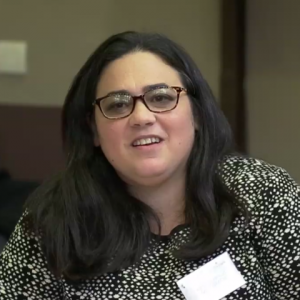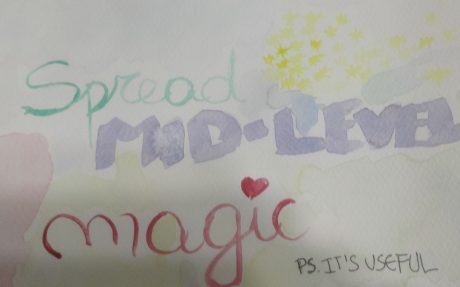Stories from the field
What makes mid-level theory-building sexy for social accountability? Key Takeaways from a Webinar
This post synthesizes 3 key takeaways from the Webinar “How to make mid-level theory more useful for social accountability that contributes to building back better?”. As I argue in a companion post, I think these are some of the reasons that get a few hundred people to sign up and engage with yet another Zoom call about a conversation that may sound boring.
Build theory for users with real, if competing needs
The theory we use to monitor, research, evaluate and learn does constrain the insights we get. For instance, when I work with colleagues who manage or support many projects we want to learn about the portfolio and compare across projects. When I have to tell the story to people who work on a broader set of issues, an elevator pitch-type statement can work better.
When I sit down with a social accountability practitioner, insights about the work with communities and officials show lots of twists and turns – like a bowl of spaghetti. Within their realm of decision-making, stakeholders at different levels need information to prioritize and allocate scarce time and resources. All of them could benefit from Monitoring, Evaluation, Research and Learning (MERL) systems that, as Arthur Namu put in the webinar chat, “opens (our) eyes to what to ask regarding programs and project impact in a structured manner”.
Yet, our MERL systems are rarely explicit about these variations and how they manage to produce information, i.e. about where in the they stand. Awareness about different levels of abstraction is important to produce fit-for-purpose MERL for concrete audiences – a point Alan Hudson underscored as a key takeaway. Mid-level theory, which focuses on the interaction between causal mechanisms and context (here and here), can help with that and, thus, be useful to support decision making at project, portfolio and field levels.
Paying attention to mid-level theory makes sense especially in social accountability because it takes a village to implement complex processes to solve complex problems. Bonus: talking mid-level theory helped us come clean and find better political and technical compromises about MERL.
Get (re)inspired together
If the conceptual and methodological debate do not give you answers about important questions, start with practice and practitioners. Look beyond your usual suspects. Linger, listen to their stories, ask and then ask again. The mid-level theories we talked about are being built by sleuths who find pieces of the puzzle listening to practitioners and probing their insights, at once. Then, they connect the dots between complex processes that many in the field are contributing to, such as systems change and strengthening, reducing power asymmetries and pathways to scale and sustainability. When they do, they tell the story in a way that aims to reflect and adds value to the work of those in the frontline, rather than simply being extractive. It needs to be their stories, but also our stories as we compare and contrast together – a point that Paula Schommer underscored can be productive to gain perspective and improve how to go about systems change.
Candor and practical tips to get better at our jobs
The mid-level theories and theory-building processes and techniques we talked about are not simple. Many other monitoring, evaluation, reporting and learning decisions colleagues make every day are difficult, too. Yet, we can get honest about the concrete ways in which mid-level theory can help us reflect on how to address difficult trade-offs many in social accountability are facing here and now. And no, mid-level theory is not a silver bullet, but might help us get unstuck, moving on to a healthier and more productive debate for action!
Want to hear more? Watch or join our multi-lingual crowd next time around. We are keeping it going, because #daprafazer (i.e. #canbedone).
Authors

Florencia Guerzovich
Independent consultant, Senior Advisor Monitoring, Evaluation, Research and Learning at the Global Partnership for Social Accountability, the World Bank
Rowlands Kaotcha
Mr. Rowlands Kaotcha is a Global Vice President and Director for Africa and Mexico, after having served as the Southern Africa Regional Director for The Hunger Project, Country Director in Malawi since 2004, and as dual Country Director of Malawi and Mozambique since October 2017. Recently, Rowlands led The Hunger Project’s expansion into Zambia and also serves as the Southern Africa coordinator for the Movement for Community-led Development.
related content
Capitalizing on the ability of civil society organizations to collect information from users of public services about the state of public service delivery, and effectively channeling this information to decision-makers in government and parliament can contribute to evidence-based policymaking, and, ultimately, to improved public services.

